US senators introduce bill to impose new sanctions on Russia
A bipartisan group of US senators has introduced legislation to impose sweeping new sanctions on Russia over its alleged attempts to interfere in the 2016 US presidential election.
Five Democrats and five Republicans unveiled the new punishments on Tuesday after the intelligence community concluded in a report that the Russian government had sought to influence the outcome of the November election through cyberhacking and a smear campaign.
The proposed legislation would solidify many of the sanctions President Barack Obama's outgoing administration has imposed against Russia and limit President-elect Donald Trump’s ability to improve relations with Moscow.
The new sanctions include visa bans and financial asset freezes against those the US intelligence claimed were behind the cyberattacks against US Democratic organizations and officials.
The hacked emails, which were allegedly provided to WikiLeaks by individuals working for the Russian government, were a regular source of embarrassment to Democratic candidate Hillary Clinton during the presidential race and may have contributed to her defeat.
"We should all be alarmed by Russian attacks on our nation," Sen. John McCain told reporters, as he criticized the Obama administration for a lack of a comprehensive strategy on cyber deterrence.
"This appearance of weakness has been provocative to our adversaries," the Arizona Republican said.
Sen. Ben Cardin, the top Democrat on the Senate Foreign Relations Committee who co-sponsored the bill, said, “We have been attacked by Russia. It cannot be business as usual.”

The measure, called “Countering Russian Hostilities Act of 2017,” would also target Russia's vast energy sector and companies that invest in or help develop its civil nuclear projects.
Republican Sen. Lindsey Graham said, as a co-sponsor of the bill, he was "not trying to undermine the legitimacy of President-elect Trump's victory" by highlighting Russia's intention to meddle in the US election. "My advice to him is that... it is now time to push back."
Other Republican co-sponsors include Senators Marco Rubio of Florida, Rob Portman of Ohio and Ben Sasse of Nebraska.
The measure would give the White House the ability to waive the sanctions, however it would have to certify that Russia’s behavior has improved.
It was not clear on Tuesday whether the legislation was likely to pass in Congress in time for President Obama to sign it, or wait for Trump to take office on January 20.
Trump has repeatedly called for better relations with Russia, arguing that only “stupid” people or “fools” would think close ties were unwise.
The Republican president-elect has rejected the implications that Russia’s alleged hacking of Democratic offices helped him win the election.
President Yoon Suk Yeol to be removed from office
At least 19 Gazans killed by Israeli airstrikes since dawn: Medics
Leader: Iran neither has nor needs proxy forces
US fighter aircraft shot down ‘in friendly fire’ amid aggression on Yemen
Yemeni FM: Israel’s sponsors accountable for ongoing aggression on Sana’a
Eight Palestinians killed as Israel attacks Gaza school, hospitals
VIDEO | Rome, Milan host new protests in solidarity with Palestinians
Dec. 21: ‘Axis of Resistance’ operations against Israeli occupation


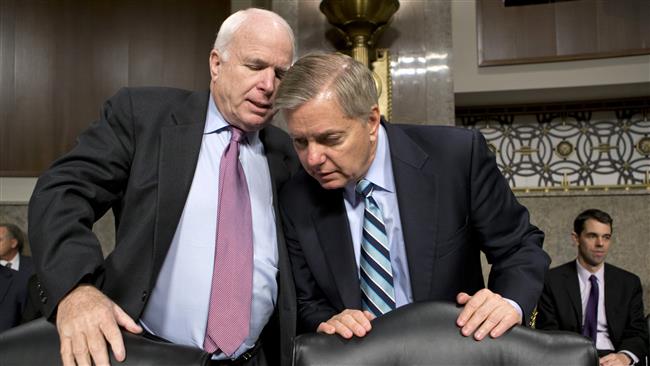






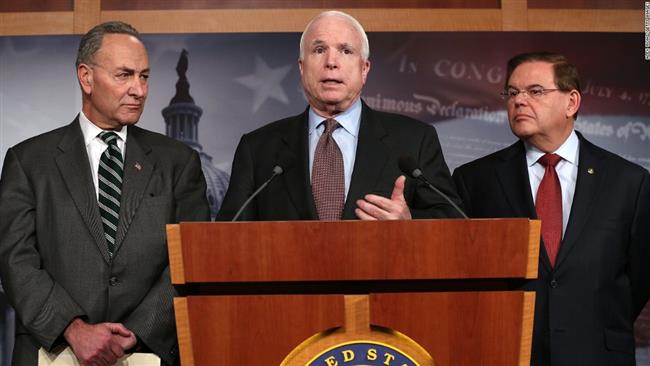
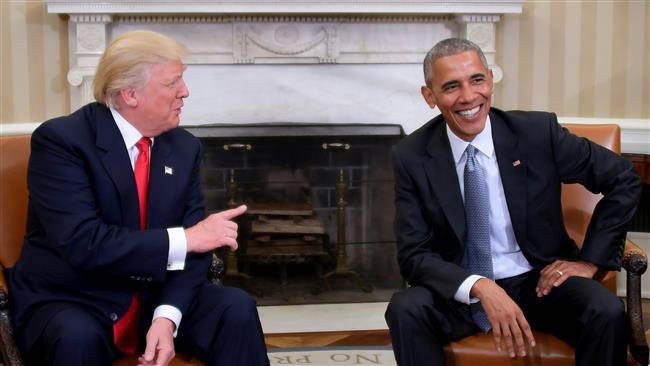
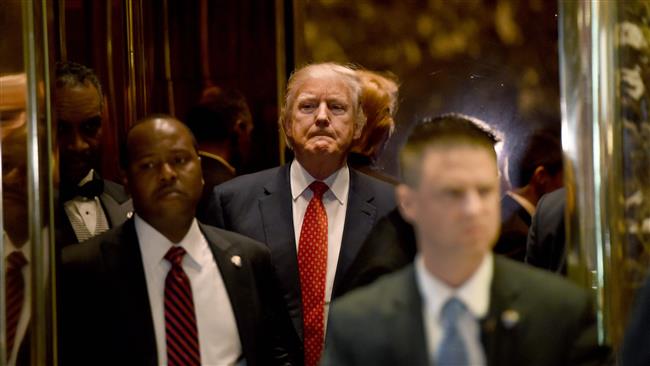
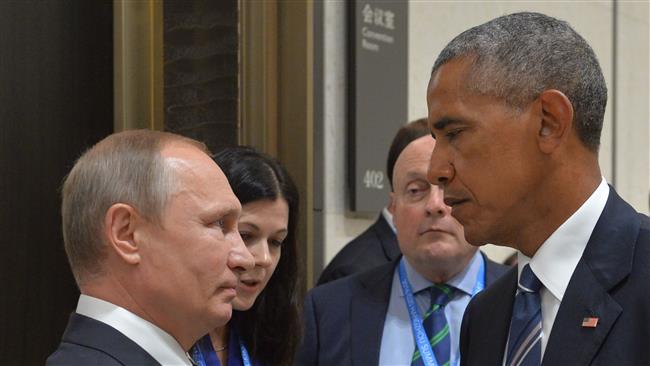
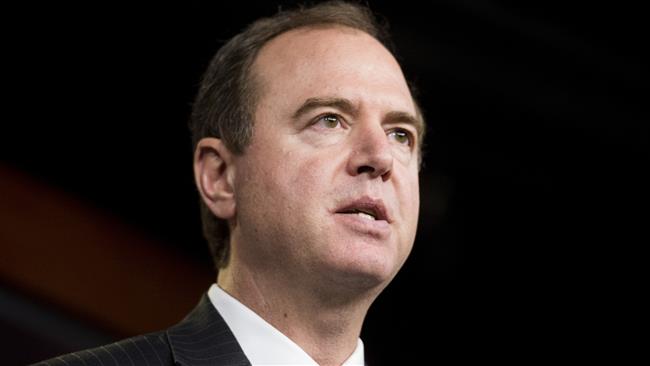



 This makes it easy to access the Press TV website
This makes it easy to access the Press TV website